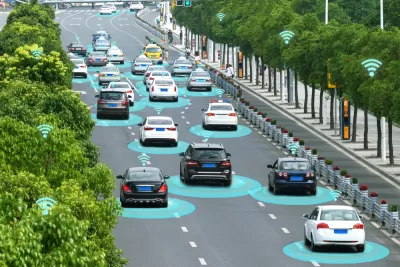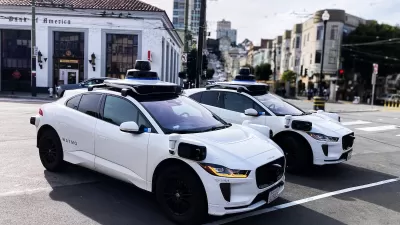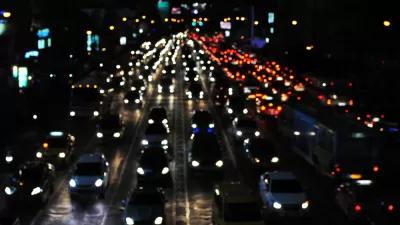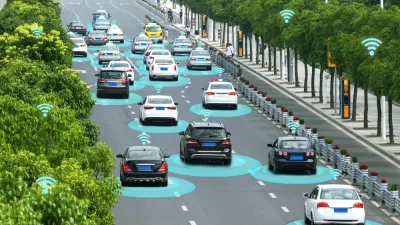How we pay for our roads will play a big role in what happens to cities when autonomous vehicles become common place in cities.

The advent of the car changed cities forever. The Economist now posits planners have a chance to change cities again with the advent of autonomous vehicles. "Urban freeways, commuter suburbs and mandatory parking requirements reshaped cities. Now AVs promise to transform them once again, undermining many car-centric assumptions made in the 20th century, opening up new possibilities and turning urban-planning debates upside down," according to an article in The Economist. But in some ways the arguments are the same. If drivers don't pay directly for the roads, autonomous cars could further spread out our cities.
"A switch to shared robotaxis could increase vehicle occupancy rates, reducing the number of vehicles needed to move people around and easing congestion," according to the article. On the other hand, it posits the potential issue of induced demand that might be created when people see the opportunity presented by newly open roads, something the author calls a "nightmare scenario."
The author suggests that the technology offers an opportunity for a more subtle form of pricing of roads "… taking account of time, place, vehicle type, number of riders, traffic levels and so forth, to maximise sharing and minimise congestion."
The piece takes a guardedly techno-optimistic view of the future, "…In retrospect, many drawbacks associated with cars in the 20th century arose from a failure to price their use properly. With appropriate pricing, AVs should be able to avoid many of those problems, giving urban planners and policymakers a much wider range of choices about how cities and transport systems could be structured." It remains to be seen whether future generations will be able to price their roads in more equitable ways than we did.
FULL STORY: A chance to transform urban planning

Alabama: Trump Terminates Settlements for Black Communities Harmed By Raw Sewage
Trump deemed the landmark civil rights agreement “illegal DEI and environmental justice policy.”

Study: Maui’s Plan to Convert Vacation Rentals to Long-Term Housing Could Cause Nearly $1 Billion Economic Loss
The plan would reduce visitor accommodation by 25% resulting in 1,900 jobs lost.

Planetizen Federal Action Tracker
A weekly monitor of how Trump’s orders and actions are impacting planners and planning in America.

Waymo Gets Permission to Map SF’s Market Street
If allowed to operate on the traffic-restricted street, Waymo’s autonomous taxis would have a leg up over ride-hailing competitors — and counter the city’s efforts to grow bike and pedestrian on the thoroughfare.

Parklet Symposium Highlights the Success of Shared Spaces
Parklets got a boost during the Covid-19 pandemic, when the concept was translated to outdoor dining programs that offered restaurants a lifeline during the shutdown.

Federal Homelessness Agency Places Entire Staff on Leave
The U.S. Interagency Council on Homelessness is the only federal agency dedicated to preventing and ending homelessness.
Urban Design for Planners 1: Software Tools
This six-course series explores essential urban design concepts using open source software and equips planners with the tools they need to participate fully in the urban design process.
Planning for Universal Design
Learn the tools for implementing Universal Design in planning regulations.
Caltrans
Smith Gee Studio
Institute for Housing and Urban Development Studies (IHS)
City of Grandview
Harvard GSD Executive Education
Toledo-Lucas County Plan Commissions
Salt Lake City
NYU Wagner Graduate School of Public Service





























